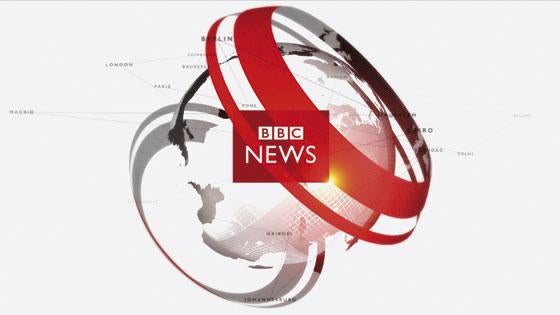
It’s precisely to get away from this kind of anecdotal, and in this case anonymous rant, that the BBC and representatives of the Newspaper Society worked together to come up with some better evidence.
We agreed the terms of how we would do that, spent a month logging stories from two evening papers, one weekly, three radio stations, two TV stations and the associated online content and then chased stories back to their source and agreed some findings.
Press Gazette has chosen to give far more prominence to a story by-lined “Anonymous” working on a newspaper which has also had its identity protected. Why would you protect the identity of a newspaper? The credibility of all that is hardly helped by the fact that neither “Anonymous” nor Press Gazette gave the BBC any chance to comment on his claims.
To start with the key fact offered – the “majority” of news stories on BBC South East Today are “lifted” from newspapers. “Anonymous” says he “knows” that because the BBC followed up around three of his stories a month on average. Even if three stories were on average lifted that simply does not prove the BBC programme lifts the majority of its stories. At the simplest level with no daily newspapers left in Kent the seven-day-a-week BBC regional news operation might struggle a bit if it was so completely reliant on newspaper copy.
The truth is far more banal. The majority of content in most news outlets is not startlingly original material, in both the published academic research and in this project most of the content is gathered in far more prosaic ways. During the project, coverage around Remembrance Sunday and the fact it snowed were far more significant as triggers for stories for both papers and broadcast media than the sort of exclusive journalism “Anonymous” is laying claim to.
I could believe that each month some, or maybe even three of the stories you worked on were also on the TV but a lot of the stories will have come to TV directly far more often than you will know. Some of the paper’s contacts are likely to be very familiar in the BBC newsrooms in the region. At the start of this research the front page lead in the paper on the Monday looked like an original story that went national. But the story had run first on the radio, early on the Sunday morning. And the truth is the man involved was a contact of both newsrooms and had talked separately to both of them so no-one had lifted anything from anyone else.
For every similar story from newspapers about material being lifted or contacts asked for I’ve been told stories by BBC newsrooms about a wide range of material lifted off their websites and of journalists from newspaper newsrooms denuded of staff by cutbacks ringing up for contacts on stories.
“Anonymous’seethes with resentment that he handed over contacts and didn’t get anything back. At street level individual journalists have long traded phone numbers or helped each other in a mutual back scratching exercise. “Anonymous” gives the lie to his claim that this is all one way traffic when he says he and his colleagues had been denied similar help by the BBC. If you were asking for help the BBC must have had some stories you wanted.
And beyond that if you don’t get something back, an on-screen credit for a picture or help when you ask in return, no-one can compel you to hand over your contacts. You say you and your colleagues decided not to give up material any more. BBC South East Today seems to have survived rather well without you
It’s continued to grow audience in an extremely healthy way and doesn’t seem short of content. It runs an investigative unit and in recent months points to stories including revealing a number of paedophile clergymen within the Anglican church which prompted an internal Church of England investigation headed by Baroness Butler Sloss. It would also point to its investigation into illegal immigration which sparked national coverage of the issue and it also points out that it has revealed significant failings in child protection in Kent.
There is cooperation between papers and the BBC in the area. For example papers ask for stills from BBC material and in return for a credit on the picture get help in the same way papers across the country help the BBC with stills. There are other examples and it’s certainly true that the BBC will follow up the best of what the papers offer, just as papers would do if the BBC has material they want.
‘Anonymous’must be one of the few journalists around who think more cutbacks in local journalism are generally to be welcomed and probably one of the very few to argue that reducing the BBC’s newsrooms would save local papers. In America there is no BBC local presence and yet newspapers are closing. It’s happening because of a squeeze on revenue driven by the internet allied to a long term decline in sales, again intensified by the internet.
Normal journalistic practice when making claims about any organisation would be to ask them for a comment. “Anonymous” hasn’t troubled to ask the BBC while being quick to accuse our journalists of laziness. TV and radio journalists are neither lazy nor incompetent; they simply do a different job. You can sit in the office, make some phone calls and run a story. If your newsroom is typical you will spend more time doing that than ever. TV journalists have to go out and film the story and then edit it before it can be transmitted. The way that is done has been transformed in recent years but it still takes much more effort and time for every story.
We ran this research in an area chosen partly because of the relative strength of the newspapers and I suspect if we had done the same thing where you work you would have got some surprises. I’ve been lucky enough to work in newspapers, radio and TV. Everyone works hard, when you see what they do in detail you end up respecting all of them. And there have been huge changes in media.
When local radio started it played music in breakfast; over the years it’s become ever more focused on daily news, shifting its resources accordingly. At the same time many newspapers have run down their front line reporting teams. The balance has shifted and that really matters. The BBC has been busy investing in a new generation of local political reporters. In the project it’s clear that is making a real difference.
Lots of things would be lost if your newspaper closed but it was quite clear to all sides in this project that a BBC local newsroom in today’s world does not need to rely on the local paper being delivered.
Email pged@pressgazette.co.uk to point out mistakes, provide story tips or send in a letter for publication on our "Letters Page" blog







